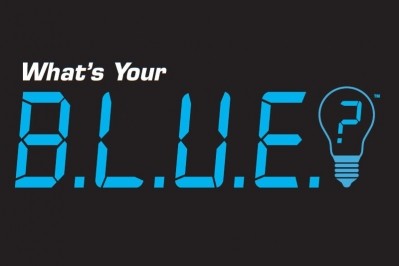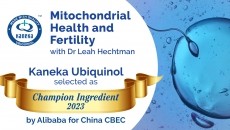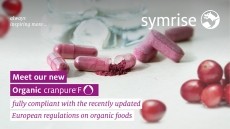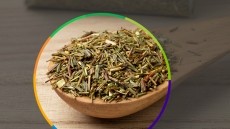Kemin and DSM commit to article 13.5 lutein submission

Along with its lutein partner DSM Nutritional Products, Kemin said positives can be taken from the European Food Safety Authority's negative opinion and utilised in a fresh submission under a “more promising pathway” – namely the proprietary and emerging science, article 13.5 pathway.
“There are positive findings in the opinion that can be referenced in future dossiers that Kemin and DSM are committed to prepare and submit under the article 13.5 procedure,” Pedro Vieira, the managing director of Kemin Health Europe, wrote in a letter to its customers yesterday.
Vieira told NutraIngredients that an article 13.5 submission gave his company the opportunity to tailor the submission more specifically than the article 13.1 dossier that had been a joint effort between various lutein suppliers.
“The key is that we have learned a lot from this opinion and are now in a position to work on a new dossier,” he said.
In his letter, Vieira affirmed that until the opinion was adopted or amended by the European Commission after discussion with member states, it was business as usual for Kemin and its customers.
“…the opinion addresses only the proposed health claims that can be made on labeling – notwithstanding the issue of whether specific health claims will or will not be allowed, FloraGLO lutein will continue to retain its status as a lawful ingredient that may be used by our customers in their food supplements and food according to the EC’s novel food catalogue,” Vieira wrote.
Products making the kind of eye health claims that have been approved by the French Food Safety Agency (AFSSA) in 2004 could continue to do so until the opinion became law, after which companies had six months to comply with it.
Oversight
In analysing EFSA’s Panel on Dietetic Products, Nutrition and Allergies (NDA) opinion that can be found here, Kemin questioned why the AFSSA position had not been given more credence.
The rejected dossier proposed the two AFSSA approved wordings word-for-word:
- “Lutein helps protect the retina and the lens from oxidation”
- “Lutein is one (of the) constituent(s) of the retina and the lens.”
Kemin added that a recently published lutein monograph by Health Canada that proposed lutein use at 20mg/day as an antioxidant and 6-20mg/day for eye sight, could bolster a new dossier.
“We believe that the company-specific submissions allowed under the proprietary and emerging science article 13.5 route will offer a good opportunity for a Kemin and DSM resubmission that finetunes proposed claim language,” Vieira continued.
The fact the NDA verdict stated there was “insufficient evidence” to demonstrate causality offered greater scope for debate by the EC/member states than the more final NDA opinion that causality had not been demonstrated outright.
This “may open the door for the lutein claims to a shorter and more promising pathway towards ultimate acceptance than hundreds of other claims” Vieira said.
The lutein field
Last week, Holger Becker, PhD, global product manager for Xangold Natural Lutein Esters at fellow lutein supplier, Cognis Nutrition and Health, noted his company had, “worked with other lutein suppliers to secure health claim approval for lutein products in Europe and will now address our future options.”
The managing director of lutein supplier Omniactive Health Technologies, Sanjaya Mariwala, stated: “We hope to learn from the experience, and bridge the information and data gaps to facilitate a fresh review of claims with the right level of justification.”
The NDA’s lutein opinion found that while the carotenoid had the ability to raise macular pigment density, this effect did not necessarily benefit, “maintenance of normal vision”.
The submission contained 232 references including 86 human studies, 42 of which were human intervention studies investigating either vision endpoints or lutein bioavailability.
Lutein, a carotenoid found in various foods including green leafy vegetables and egg yolk, has a ten-year history in the dietary supplement market as a nutrient to reduce the risk of age related macular degeneration (ADM). It is often used in combination with zeaxanthin.
The global lutein market is set to hit $124.5 million (€93 million) in 2013, according to a 2007 report from Frost & Sullivan.












